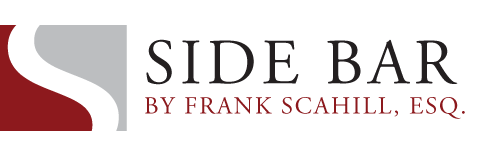COVID-19 Q&A with FrankScahill:
Coverage Counsel has been lighting up the internet with the possibility of coverage for Covid-19 related losses through Business Interruption policies. The news is bleak for most policyholders. The Department of Financial Services published the following queries: "Your business interruption insurance policy should list or describe the types of events it covers. Events that are not listed on, or not described in, the policy is typically not covered. It is important to review the policy exclusions, coverage limits, and applicable deductibles. You should also determine if the policy requires your business interruption to last for a certain time period before you are entitled to any policy benefits. Business interruption coverage typically can only be triggered if you have property loss that leads to the business interruption. One example could be that fire in your office has caused you to suspend your business activities."
Q. How does my business interruption insurance policy treat the novel Coronavirus (COVID-19)?
A. It is unlikely that a current business interruption policy has contemplated the coronavirus specifically. However, you should check to see if your policy has an exclusion that would disable coverage for an incident triggered by an epidemic or pandemic, which might apply as the COVID-19 situation evolves. Also, any claim would still need to be related to your property damage for coverage to be triggered.
Q. Does my business interruption insurance policy cover me if my employees stay home out of concern about COVID-19?
A. As explained above, business interruption coverage requires a related property damage. Fear of COVID-19 alone is unlikely to trigger business interruption insurance coverage.
Q. Does the Governor's declaration of a State of Emergency affect my business interruption insurance policy?
The State of Emergency declaration does not change the terms of your business interruption policy. It does, however, indicate the serious attention that the Governor has directed all state agencies to give to COVID-19. As a result, the Department of Financial Services is focused on consumers having the greatest amount of knowledge about their business interruption insurance. Case law also provides little solace: "The purpose of business interruption insurance is to indemnify the insured against losses arising from an inability to continue normal business operation and functions due to the damage sustained a result of the hazard insured against.' " (Cytopath Biopsy Lab. v. United States Fid. & Guar. Co., 6 A.D.3d 300, 301, 774 N.Y.S.2d 710 [1st Dept.2004] [citation omitted] ). "Business interruption losses experienced by the insured beyond the time needed to physically restore the destroyed or damaged property are not recoverable." (44 Am. Jur. 2d Insurance § 1549; see also Retail Brand Alliance, Inc. v. Factory Mut. Ins. Co., 489 F.Supp.2d 326 [S.D.N.Y.2007]; Children's Place Retail Stores, Inc. v. Federal Ins. Co., 37 A.D.3d 243, 829 N.Y.S.2d 500 [1st Dept.2007] ). Another purpose of business interruption insurance is to "return to the insured that amount of profit that would have been earned during the period of interruption had a casualty not occurred" (Pennbarr Corp. v. Ins. Co. of N. Am., 976 F.2d 145 [Ct.App., 3d Cir.1992] ), or to "compensate an insured for losses stemming from an interruption of normal business operations ... thus preserving the continuing of the insured's business earnings by placing the insured in the position that it would have occupied if there had been no interruption" (Voss v. Netherlands Ins. Co., 22 N.Y.3d 728 n. 1, 985 N.Y.S.2d 448, 8 N.E.3d 823 [2014], quoting 11 Steven Plitt et al., Couch on Insurance 3d § 167:9). See Nat'l Union Fire Ins. Co. of Pittsburgh, Pennsylvania v. TransCanada Energy USA, Inc., 52 Misc. 3d 455, 466, 28 N.Y.S.3d 800, 809-10 (N.Y. Sup. Ct. 2016), aff'd sub nom. Nat'l Union Fire Ins. Co. v. TransCanada Energy USA, Inc., 153 A.D.3d 1153, 61 N.Y.S.3d 4 (N.Y. App. Div. 2017) "Generally, it is for the insured to establish coverage and for the insurer to prove that an exclusion in the policy applies to defeat coverage" (Consol. Edison Co. of N.Y. v. Allstate Ins. Co., 98 N.Y.2d 208, 218, 746 N.Y.S.2d 622, 774 N.E.2d 687 [2002]; see also Platek v. Town of Hamburg, 24 N.Y.3d 688, 3 N.Y.S.3d 312, 26 N.E.3d 1167 [2015] [although insurer has burden of proving applicability of exclusion, insured has burden to establish existence of coverage] ). Even where an insurance policy covers "all risks," the insured must prove that a loss occurred and that the loss is covered. (U.S. Dredging Corp. v. Lexington Ins. Co., 99 A.D.3d 695, 952 N.Y.S.2d 60 [2d Dept.2012] ).The insurance carriers have a mechanism in place to evaluate and resolve claims. If the Federal Government exercised its powers under the Commerce clause to declare the Covid-19 pandemic an 'occurrence' within the meaning of business interruption policies, the State Insurance Departments will follow. The Fed can then pump money into the carriers for distribution to policyholders on claims they would not normally be forced to cover. Rather than rely on the SBA PPP program (The Paycheck Protection Program (PPP) funds have been exhausted. In less than two weeks, $349 billion has been claimed by around 1.6 million small business owners, only 6% of small business owners), The Fed should look to the existing Insurance framework in America to save small business. Of all the questions asked of Secretary Mnuchin and Governor Cuomo, no one has brought this up thus far. I hope someone does.

